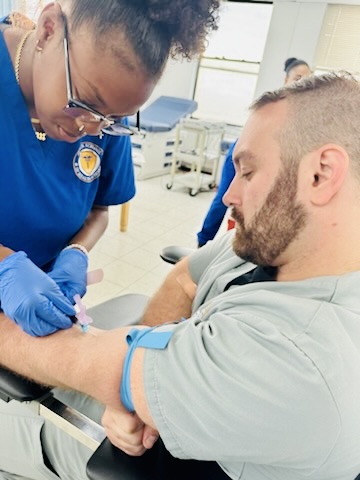The evolving role of medical assistants in the modern healthcare landscape highlights their increasing involvement in patient education. As the healthcare environment becomes more dynamic and patient-centered, medical assistants are stepping up to support clinical and administrative functions and enhance patient engagement and health outcomes. This pivotal shift underscores why it’s crucial to educate patients and how medical assistants are perfectly positioned to bridge the gap between clinical advice and patient understanding.
Why is the Role of Medical Assistants Changing?
Medical assistants have traditionally been seen as the backbone of healthcare settings, handling many tasks that ensure operational smoothness. However, their role is expanding beyond administrative and basic clinical duties. With the healthcare industry’s shift towards preventative care and chronic disease management, medical assistants are increasingly tasked with patient education duties—empowering patients to take an active role in their health management.
Medical assistants use various patient education methods to explain complex medical terms, demonstrate the use of medical devices, or guide patients through medication protocols. This not only helps in improving patient outcomes but also enhances patient satisfaction and compliance with treatment plans.
How Will Healthcare Be Shaped By This Shift?
The integration of medical assistants into patient education is transforming healthcare delivery. By equipping patients with knowledge and self-care skills, medical assistants ensure that patients are less reliant on direct medical interventions and more capable of managing their health proactively. This shift alleviates the burden on healthcare facilities and promotes a healthier, more informed patient population.
Educating patients is not just about conveying information; it’s about fostering a deeper understanding and enabling patients to make informed health decisions. This aspect of healthcare is becoming a fundamental element of medical assistant roles, reflecting a broader trend of empowering patients as partners in their care.
What the Future Holds for Medical Assistants
The future looks promising for medical assistants who embrace these evolving roles, especially in patient education. As healthcare emphasizes personalized patient journeys, the need for skilled communicators who can effectively educate patients will grow. Medical assistants are poised to become not just facilitators of care but also educators and advocates for patient wellness.
Training programs are already reflecting these changes, incorporating modules on how to educate patients effectively and why it is important to educate patients. This ensures that future medical assistants are prepared to handle traditional responsibilities and meet the expanding needs of modern healthcare settings.
Navigating Changing Expectations for Medical Assistants
As medical assistants’ scope of practice evolves, so must their training and education. Prospective medical assistants must seek programs offering comprehensive clinical, administrative, and educational training. Emphasizing patient education within training curricula is essential, as it prepares medical assistants to handle questions, offer clear advice, and translate medical jargon into understandable language.
Medical assistants who excel in these areas can significantly impact healthcare delivery by reducing readmissions, improving treatment adherence, and enhancing the overall health literacy of their communities.
Interested in Pursuing a Career as a Medical Assistant? Contact Us Today to Learn More.
As medical roles transform, so do the opportunities for those entering the field. The Allen School of Health Sciences is committed to preparing students for these dynamic roles, particularly in patient education. Our programs are designed to equip you with the practical skills needed in the real-world healthcare setting, blending rigorous academic training with hands-on experience.
We’re here to help you understand our programs and how we can support you in becoming a vital part of the future healthcare landscape. If you’re ready to start a fulfilling career where you can make a real difference in patients’ lives, contact the Allen School today!


